Strangers become friends
The first night of our first Camino was extraordinary. We had climbed what seemed like an 8km (5 mile) staircase — without the stairs. At Orisson where we had booked to stop for the night, we found ourselves bunked in with another Australian couple and we quickly became friends. Around the communal meal table, we feasted on a three-course meal and copious wine. The Italians sang ‘O solo mio’. And everyone was encouraged to share where we were from, where we started, and how far we intended to walk. Most, of course, are heading for Santiago de Compostella. But a few were walking in stages and finishing at Burgos or Pamplona. Some had walked from Le Puy in France, and one had started from Geneva. It was like a microcosm of the world as described by Hierocles.
The people we met that night would become our companions for much of the Camino — our Camino family. Some would walk faster, a few slower, so there would be farewells along the way. And we learned three things that night. The first is that we had all shared the experience of a hard day’s walk climbing 1400metres in 8kms. The second was how to negotiate the complete lack of privacy among strangers. And the third was how quickly did the reservations between strangers melt away.
Time to ditch Stranger Danger?
We are taught stranger danger from when we are children — to fear the Other, the unknown person, those who are not Us. And yet here we were, thousands of kilometres from home, in a foreign country, comfortably negotiating shower times, working out an etiquette for getting changed around strangers, and sleeping in the same room.
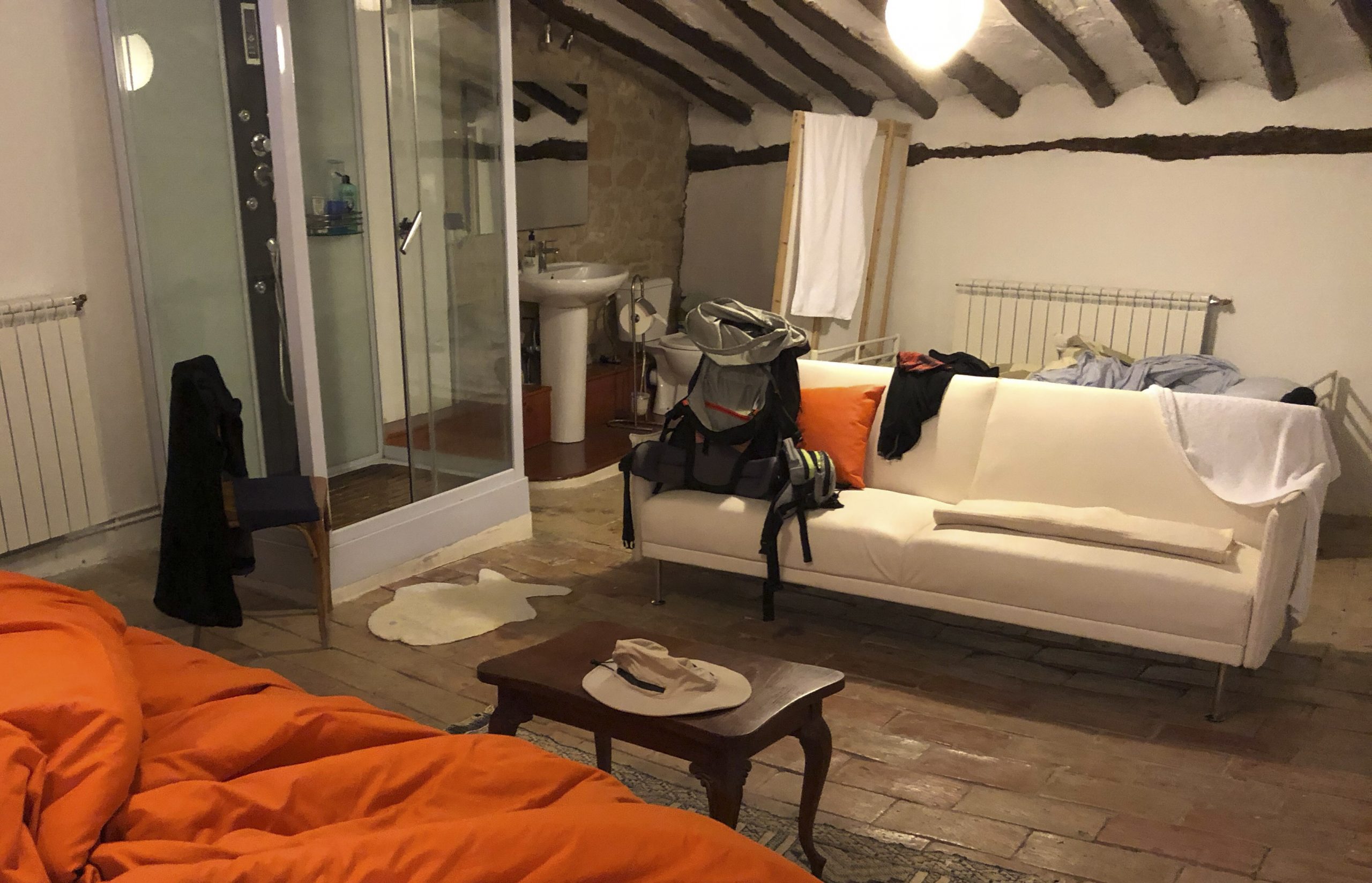
Forming a sense of community
What we did not realise at that time, was that we were collectively bonding into a community of fellow pilgrims, fellow travellers, and in the process, we were forming a new kind of identity or self-image. This would be reinforced in the days to follow. We would meet new strangers who would become friends — quickly skipping the acquaintance phase. There was no time for small-talk — we quickly found ourselves and others sharing deeply held ideas and aside from the practicalities of discussing the terrain, the weather ahead, and the best ways to treat blisters, and so on, there were random discussions in cafes about the nature of life, the vastness of the universe and personal stories of grief and life-changing decisions.
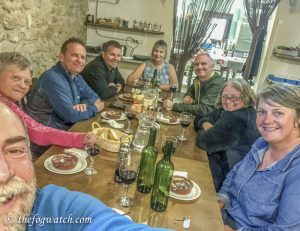
At some level, we are all social people. That’s why we live in communities and develop societies. We are seemingly not designed for solitude. Place strangers among shared hardship, towards a shared goal, and somehow that shared experience creates a bond that cuts through the reservations we feel towards those we otherwise did not know. And yet our society constantly reinforces barriers between people. We mediate many of our interactions through a screen, we shut ourselves away in cocoons of dark glasses and the ever-present soundtrack to our lives. We apply dress codes and status markers, all in the name of self-esteem. And all this stranger danger has been brought front and centre by lockdowns, video calls, ‘social distancing’ and mask-wearing in an effort to slow the spread of the deadly Covid-19 pandemic.
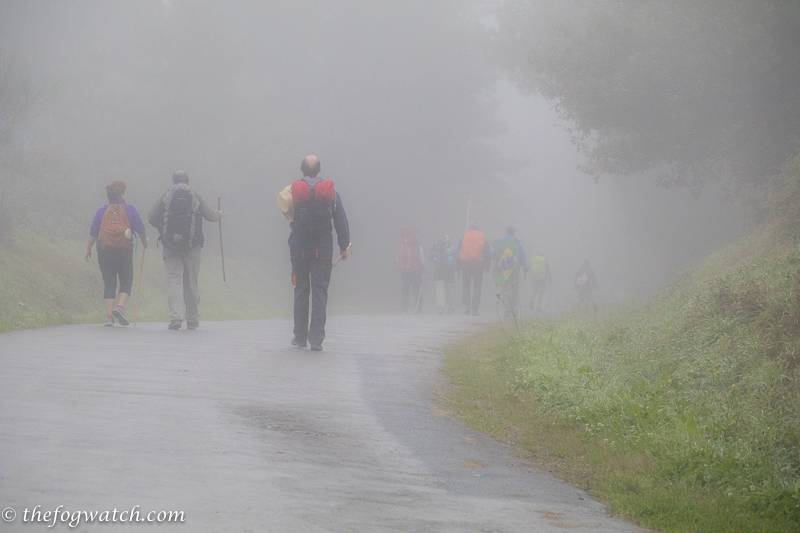
Hierocles’ Circles
Hierocles, who lived in the 2nd century BC had an idea about the nature of society in which he envisaged our degrees of connectedness as a series of circles. We are firstly self-aware, so our sense of who we are forms the centre of the circle, then there is our family, then friends, then acquaintances, then our local community, then our city, our state, our country, all humanity, all creatures, our planet and the universe. And for most of us, those circles require some negotiation over time if we are to migrate from one level to the next. Our boundaries are fairly well defined, and there is a complicated etiquette required to negotiate any move from one level of that hierarchy of friends to another.
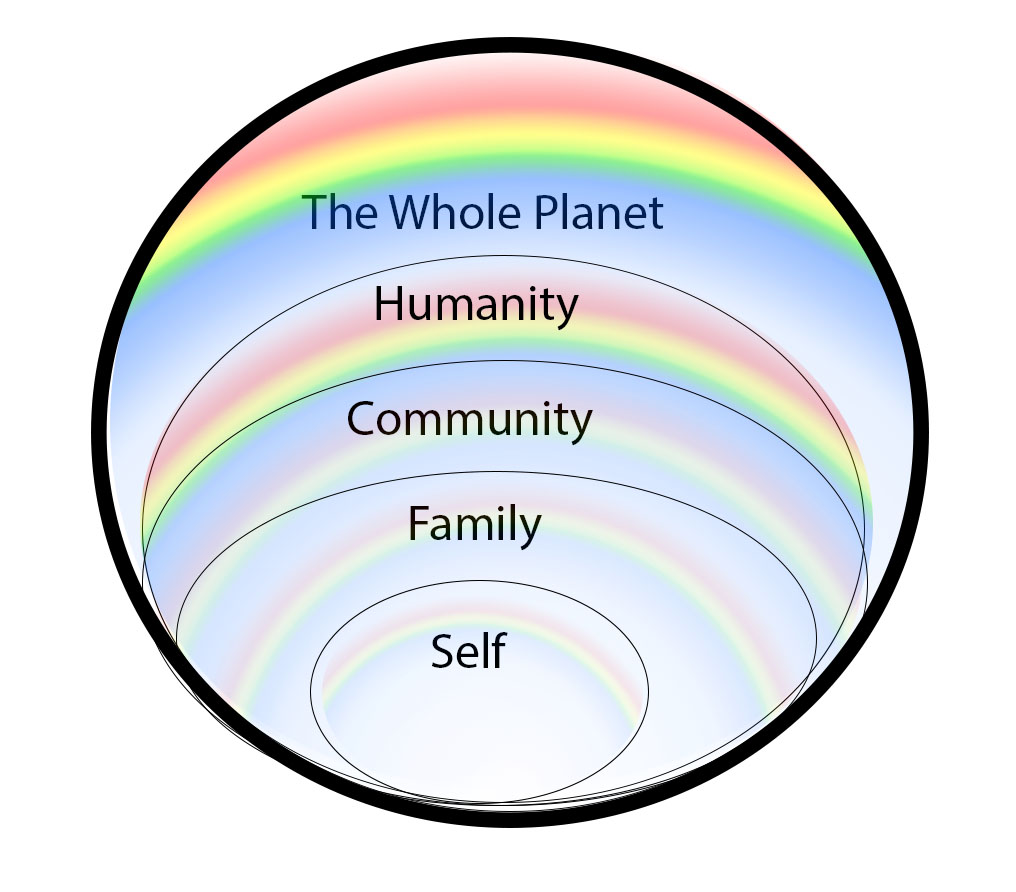
At home, we tend to spend most of our time in quite a small group: Our family, our group of friends, our workmates, and perhaps a loose group of acquaintances, friends of friends whom we might see from time to time. We sometimes get glimpses of broader humanity on the News where we hear about floods or political scandals far away, and various sports held in various countries. But it’s all a bit abstract, isn’t it?
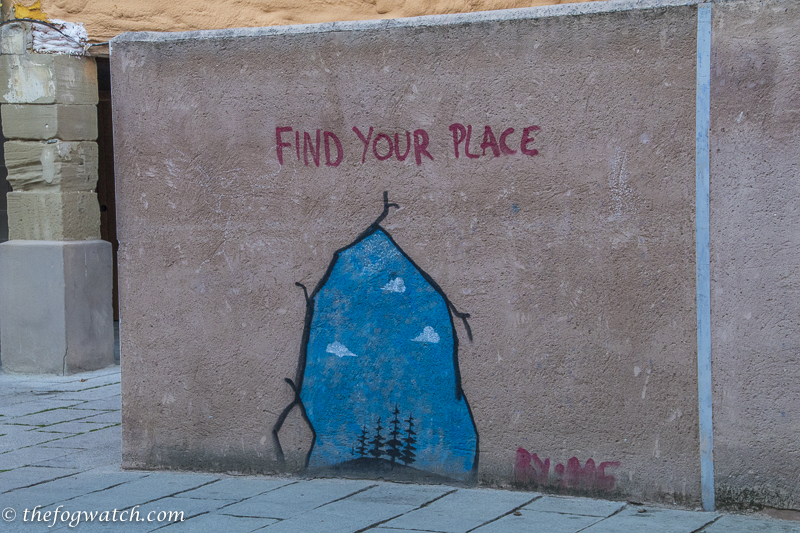
Becoming Pilgrims
So what happens when we strip away all that familiarity, travel to a distant land, remove the status markers, dress to the minimum practical outfit, carry just a change of clothes in a backpack, and deposit ourselves among strangers with a limited common language, and see what happens. On the Camino, we become a moving community. We identify as a group, we carry a shell to signify our common purpose. And we become a new kind of ‘Us’. We are pilgrims.

I suspect it’s a similar process that the military uses in putting recruits through a boot camp. Stripped of their past, recruits are given a uniform, a backpack, and are put through physical trials that break people down to their bare humanity, then rebuild them as a community of disciplined forces. By the end of it, they are distinguishable, even without a uniform, by their bearing, their approach to life, and their camaraderie. They quickly fall in step with each other, showing their almost unconscious awareness of their companions. They are dedicated to a life of service to the community. And they live a somewhat monastic life. Often they spend years being posted from base to base and kept a little apart from wider society.
Civil servants or public servants — government employees — are also structured along ecclesiastical lines. The hierarchy, the time structure, the clerical work, and the rhythm of the day all derive from monastic models. And this, too, forms a kind of identity.
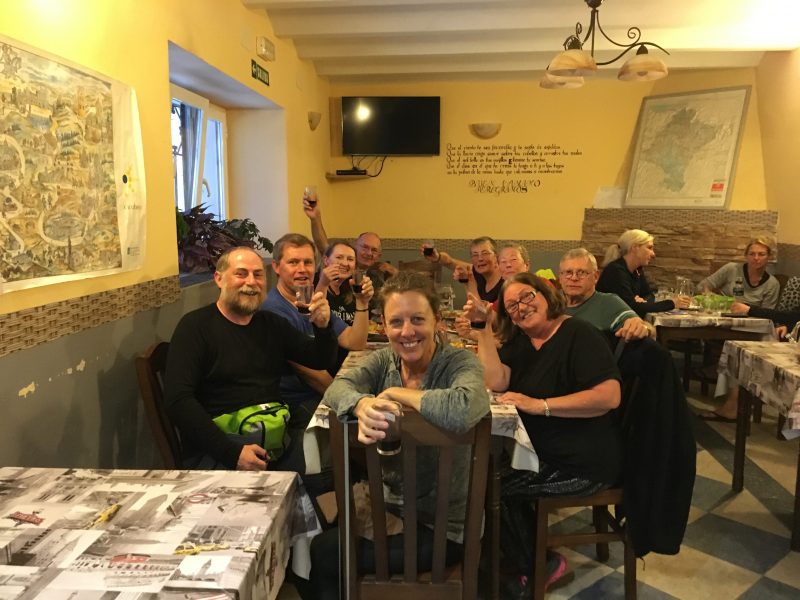
Collapsing Hierocles’ Circles
But whereas the disciplined forces have their identity imposed from without, molding the person into a particular place within a disciplined machine, the Camino is different. The identity is self-imposed from within. The sense of care for others arises from a shared goal. The awareness of others comes from care for our fellow humans. And that’s regardless of background, on a shared journey, both inward and outward. each mirroring the other. In this way, the Camino collapses the Circles of Hierocles.
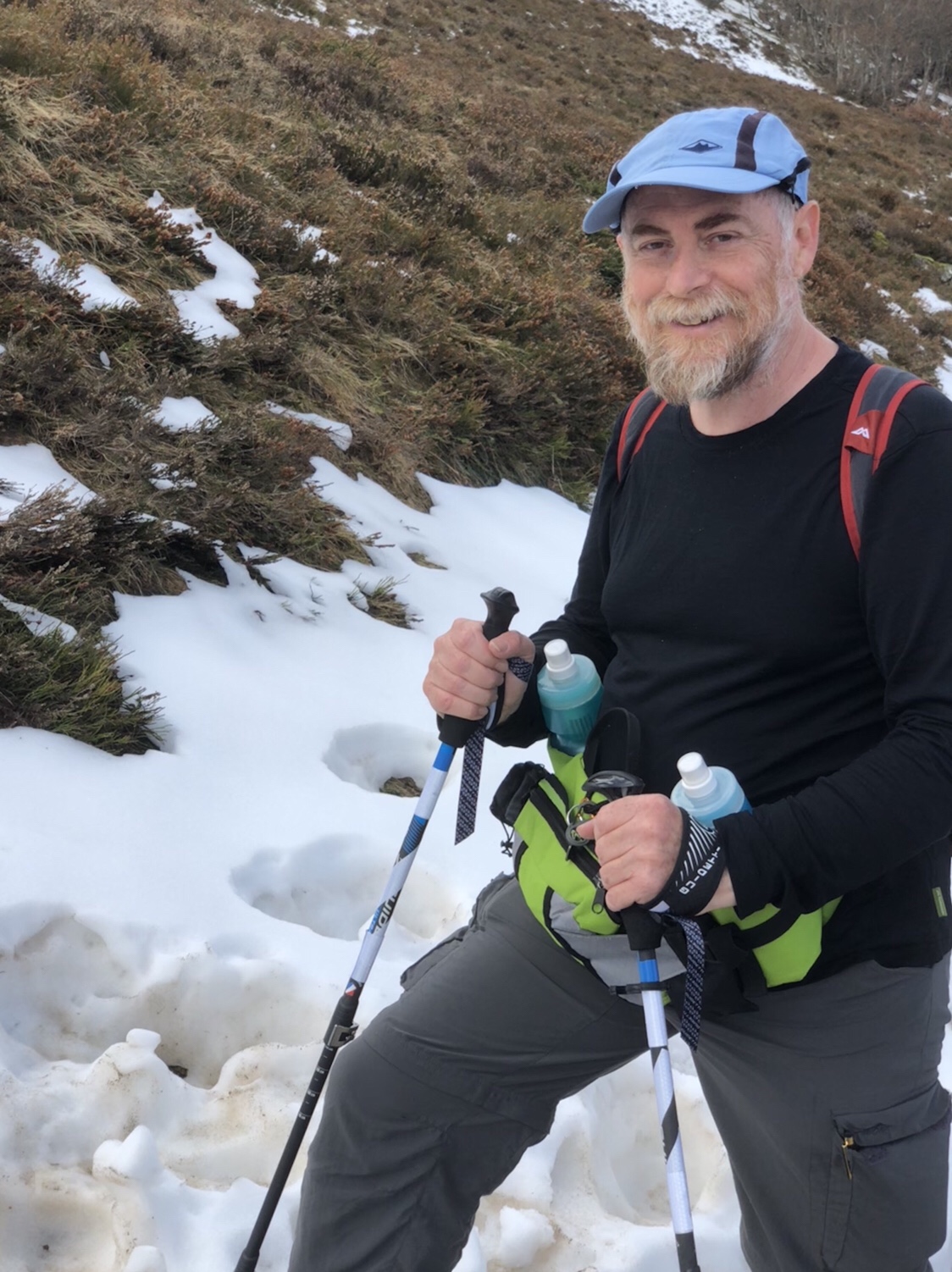
We begin by climbing a mountain — it is physically demanding. We do so with our individual determination. And by meeting others going through the same process, we can identify with the hardships of others. We are stripped of our markers and walk in our common humanity carrying just the essentials. And a shell. The shell denotes that all paths come together in the end. Symbolically that end is the supposed tomb of the apostle St James. Perhaps it’s our own tomb at the end of life. So we walk the path of life together. Each day we are reminded that everyone’s struggle is our own. Eat, sleep, walk, find clean drinking water, and repeat.
And after a month or six weeks, we arrive at Santiago, only to discover that we have reached the beginning. The challenge, then, is to bring that sense of pilgrimage back to our daily lives. To look out for others, to see our fellow humans as people, each with their daily struggle. To walk through life with compassion and care and to treat others as we would like to be treated, and similarly to care for this fragile planet — the home we all share. That, for me, is what the Camino is all about.
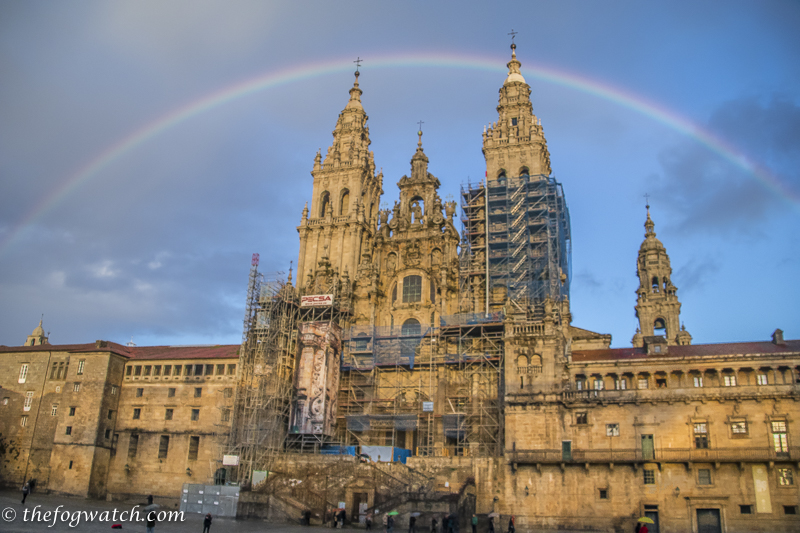

Pingback: The Way of Saint James | Bartered History
Yes, in many ways the pilgrimages saw the start of what became the practice of bringing back souvenirs from visits to other places. From medieval times, bringing back a scallop shell was proof to one’s employer that a person had indeed undertaken the pilgrimage, where the pilgrim had been given leave from their work for that purpose.
Love The Fog Watch with stories and thoughts on your Camino travels Jerry. Thanks.
Thanks Evelyn — I’m so glad you enjoy the Camino travels 🙂
Thank you for this most explicit and enjoyable Post. It is good to see through other eyes how we may behave with Strangers and how to mix freely and comfortably too.
Thanks Maureen — It’s interesting how so much depends on the context in which we meet people 🙂
That was very thought provoking. I truly enjoy it. I’d love to partake in a communal activity such as walking the Trail, but my husband can’t see the value. So, in the meantime I will live vicariously through you wonderful writing and ponder your wise words. Thank you.
Thanks Ann — I’m glad you enjoyed it — I hope you get the opportunity to walk the Camino some day 🙂
Wonderfully written, Jerry, I read it al again.
Thanks Anneliese! I’m glad you enjoyed it 🙂